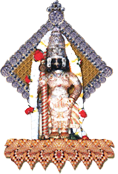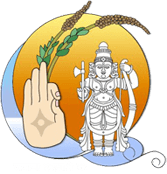यं हि न व्यथयंति एतॆ पुरुषं पुरुष-ऋषभ
सम दुःख सुखं धीरं सः अमृतत्वाय कल्पते ॥ २.१५ ॥
ಯಂ ಹಿ ನ ವ್ಯಥಯಂತಿ ಏತೇ ಪುರುಷಂ ಪುರುಷ-ಋಷಭ
ಸಮ ದುಃಖ ಸುಖಂ ಧೀರಂ ಸಃ ಅಮೃತತ್ವಾಯ ಕಲ್ಪತೆ || ೨.೧೫ ||
yaM hi na vyathayaMti EtE puruShaM puruSha-RuShabha
sama duHkha sukhaM dheeraM saH amRutatvAya kalpate || 2.15 ||
O Bull among men, whomsoever destitute of attachment, whom the prospect of pleasure and pain does not at all agitate, that Purusha, who is capable of keeping himself above the influence of exhilaration or dejection that may be produced by the pleasurable or painful sensations, is able to tread the path of Mukti
As a Kshatriya it is Arjuna’s paramount duty to uphold dharma and destroy adharma without expecting material results as pooja to Shri Krishna. To an ignorant mind it may appear that avoiding pain is good. However, a far greater purusharta is leaving abhimana and the fruit of this is Moksha (amRutatvAya kalpate) itself.
3. The word Purusha is usually translated as “man”. This is incorrect in this context. Purusha (puram sharati) also means one who is awake and aware.
This word also means one who has knowledge of Brahma and is competent or qualified to walk the path of Moksha. By the use of this word “Purushah”, Shri Krishna indicates that one who leaves of abhimana or attachment he attains Brahma Jnana and Moksha.
4. dhIra – brave and wise
He is brave and wise because he does not lament when sorrow comes and get intoxicated when happiness (sukha in some form) comes. His mind is always equipoised.
5. Sama-duhka sukam:
Most translators wrongly translate this part as treating sorrow and happiness as same. This makes no sense at all. Happiness and sorrow are NOT same whether you are dhira or not.
What this means is that a dhira is NOT affected by material conditions. The translation is very correct.


